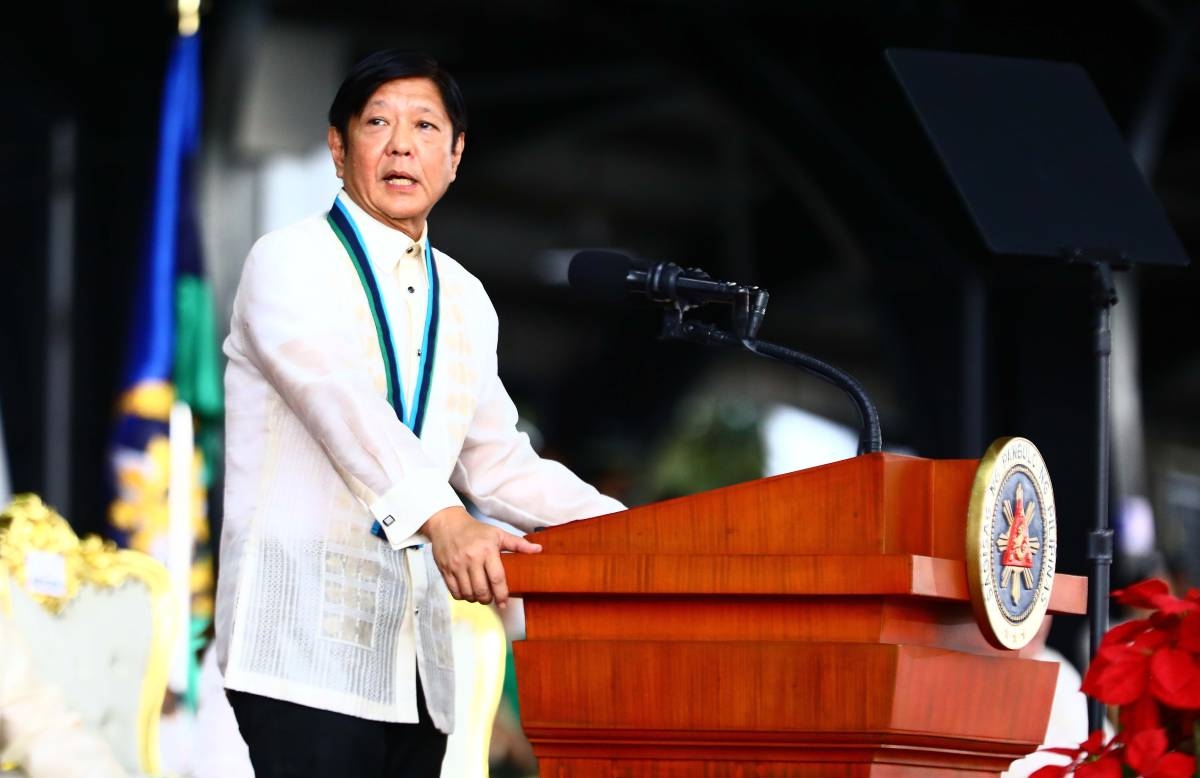President Ferdinand Marcos Jr. on the Philippines’ Independent Stance
President Ferdinand Marcos Jr. firmly asserted that the Philippines’ actions in the South China Sea dispute are rooted in the country’s independent decision-making and are not influenced by any foreign power, including the United States. He emphasized that the Philippines is not merely “poking the bear” or acting as a pawn in a larger geopolitical game. Instead, the nation’s actions are driven by a strong sense of national interest and a commitment to maintaining stability in the region.
The Philippines’ Historical and Legal Claims
Marcos Jr. highlighted that the Philippines has a long-standing history of asserting its sovereignty in the South China Sea and protecting its territorial claims. The country’s position is grounded in international law, particularly the United Nations Convention on the Law of the Sea (UNCLOS), which upholds the rights of coastal states to exploit and protect their resources within their exclusive economic zones.
Pursuing Peaceful and Diplomatic Means
The President acknowledged that the South China Sea is a complex and contentious issue, with multiple claimants vying for control over the disputed waters. However, he made it clear that the Philippines is committed to pursuing peaceful and diplomatic means to resolve the dispute. The nation firmly believes in upholding the principles of international law, including the peaceful settlement of disputes, freedom of navigation, and the maintenance of regional stability.
Strengthening Defense Capabilities
To further demonstrate the Philippines’ commitment to an independent stance, President Marcos Jr. highlighted the country’s efforts to strengthen its defense capabilities. The government has invested in modernizing its armed forces, enhancing maritime surveillance, and fostering strategic partnerships with other countries in the region. These initiatives are aimed at safeguarding the Philippines’ sovereignty and deterring any potential threats to its territorial integrity.
Engaging in Dialogue and Cooperation
Furthermore, President Marcos Jr. stressed the importance of engaging in dialogue and cooperation with all parties involved in the South China Sea dispute. He expressed his willingness to work with China and other claimant states to find a peaceful and mutually beneficial resolution. The President firmly believes that diplomatic negotiations and adherence to international law are essential in resolving the complex issues surrounding the South China Sea.
The Philippines’ Self-Determination and Upholding International Law
In conclusion, President Ferdinand Marcos Jr. of the Philippines has made it abundantly clear that the country’s actions in the South China Sea dispute are driven by its own determination to protect its interests and maintain stability in the region. The Philippines is committed to an independent stance, free from external influence, and is actively pursuing diplomatic means to resolve the dispute. With a focus on upholding international law and engaging in dialogue, the nation remains steadfast in its pursuit of a peaceful and mutually beneficial resolution to the complex issues in the South China Sea.
Avoiding Conflict and Promoting Dialogue
Efforts to avoid conflict and promote dialogue in the South China Sea dispute have been a top priority for President Marcos Jr. and his administration. Recognizing the potential consequences of a full-blown war between the United States and China, the President has been actively engaging with partners and allies to find peaceful solutions.
Dialogues at Various Levels
The Philippines has taken a proactive stance in initiating dialogues at various levels. At the sub-ministerial level, representatives from different countries engage in discussions to address specific concerns and find common ground. Moving up to the ministerial level, foreign ministers from the involved nations come together to discuss broader regional issues and explore avenues for cooperation. At the highest level, executive dialogues are held to facilitate direct engagement between heads of state or government.
Informal Talks and Track II Diplomacy
In addition to these formal dialogues, the Philippines has also been engaging in informal talks and Track II diplomacy. These non-official channels allow for more candid discussions and creative brainstorming, as they are not bound by the constraints of formal diplomatic protocols. By exploring different avenues of dialogue, the Philippines seeks to find innovative solutions and build bridges between nations with conflicting interests.
The Philippines’ Approach to the Mutual Defense Treaty (MDT)
The Philippines has long been committed to resolving disputes through peaceful means and maintaining stability in the region. This commitment is rooted in the country’s foreign policy principles, which prioritize diplomacy and multilateral cooperation. By emphasizing the importance of avoiding unnecessary escalation and tensions, President Marcos Jr. is highlighting the Philippines’ stance on the issue of invoking the Mutual Defense Treaty (MDT) with the United States.
Philippines’ Diplomatic Avenues and Maintaining Regional Stability
In recent years, the Philippines has actively pursued diplomatic avenues to resolve conflicts in the West Philippine Sea. The country has engaged in dialogue with China and other claimant states, seeking to find common ground and build trust. While the Philippines remains committed to its alliances and partnerships, including the MDT with the United States, it also recognizes the importance of maintaining good relations with all countries in the region. The country seeks to be a responsible and constructive player, working towards a peaceful and rules-based order in the West Philippine Sea.







